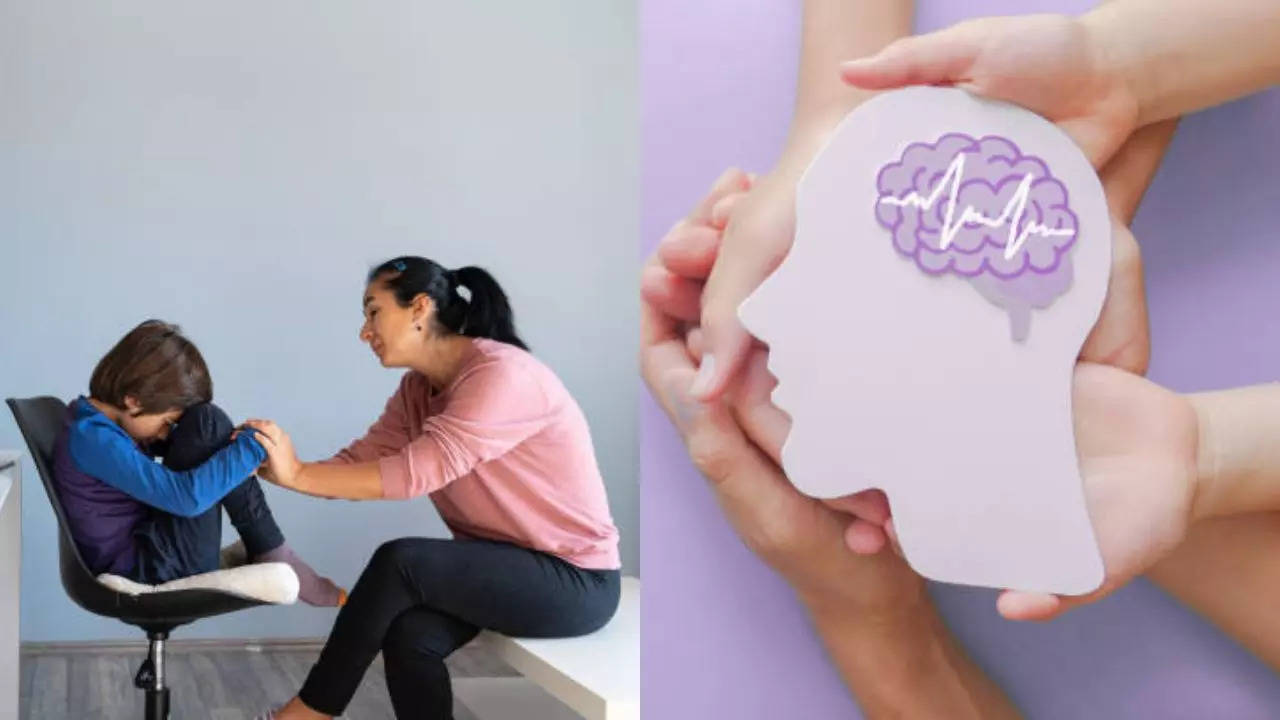Children’s Mental Health Tips: Mental Illnesses In Kids That Need Quick Check And Treatment


While younger kids may not be able to express how they feel or explain why they are behaving in a certain way, it becomes difficult for parents to understand
Children have the same mental health conditions as adults and identifying them can be tricky for doctors. However, children are different from adults as they experience many physical, mental, and emotional changes as they progress through their natural growth and development. They also are in the process of learning how to cope with, adapt, and relate to others and the world around them.
While younger kids may not be able to express how they feel or explain why they are behaving in a certain way, it becomes difficult for parents to understand. Also, each child matures at their own pace, and what is considered “normal” in children falls within a wide range of behaviour and abilities. And so, it is important that a diagnosis of any mental health issue should be made well in time for treatment to be effective.
Common mental health disorders among children
A few mental health disorders in children may include the following:
Autism spectrum disorder
Autism spectrum disorder or ASD is a neurological and developmental disorder that affects social, communication, and behavioural challenges in children. While ASD can be diagnosed at any age, doctors say the first symptoms generally appear in the first two years of life.
Children with these issues are often confused in their thinking and have issues understanding the world around them. Cases can be mild, severe, or somewhere in between. Doctors say an early diagnosis means treatment can begin sooner.
ADHD
ADHD or attention deficit hyperactivity disorder, leads to problems in children like paying attention and concentration issues, following directions and routines, staying organized, regulating mood, and controlling overactivity.
ADHD is a long-term brain condition that causes executive dysfunction, which disrupts a child’s ability to manage their own emotions, thoughts, and actions. If not treated well in time, ADHD can potentially lead to a number of long-term complications including poor self-esteem, depression, anxiety, sleep issues, eating disorders, and substance abuse disorder.
Schizophrenia
Even though it is uncommon in children, schizophrenia is a serious mental health condition that affects their feelings and behaviour. It can be a result of a mix of hallucinations, delusions, and disorganized thinking.
While childhood schizophrenia is essentially the same as the condition in adults, it starts early in life – generally in the teenage years and has a profound impact on a child’s overall personality. With childhood schizophrenia, the early age of onset presents special challenges for diagnosis, treatment, education, and emotional and social development.
Anxiety
Anxiety happens in children when worries take over their lives as a reaction to a possible threat. Even though these fears are usually short-lived and show that kids are learning to solve problems on their own, the signs should not be taken lightly.
According to experts, up to one in five kids will develop what doctors consider anxiety disorders. Childhood anxiety disorders differ from normal fear or anxiety because they involve more extreme avoidance, bigger emotional reactions, or last longer than expected. Children with anxiety disorders often have emotional outbursts like crying or throwing tantrums, along with showing a lot of avoidance.
Apart from these, there are many physical symptoms of anxiety as well, like stomachaches, headaches, nausea, vomiting, breathlessness, or sleep issues.
Eating disorders
Teenagers are more susceptible to eating disorders, which can lead to major health issues like anorexia, bulimia, or binge eating – most of these cause havoc with the digestive and reproductive systems in adult years.
According to experts, even though eating disorders develop during adolescence or early adulthood, they can sometimes, even start in childhood. Girls are usually more vulnerable as only 5-15 per cent of those with anorexia or bulimia are males. Children with eating disorders usually have problems like distress, fear of becoming overweight, feelings of helplessness, and low self-esteem.
link




:max_bytes(150000):strip_icc()/asian-sick-little-girl-lying-in-bed-with-a-high-fever-952683074-5b5b784046e0fb005027ca13.jpg)


